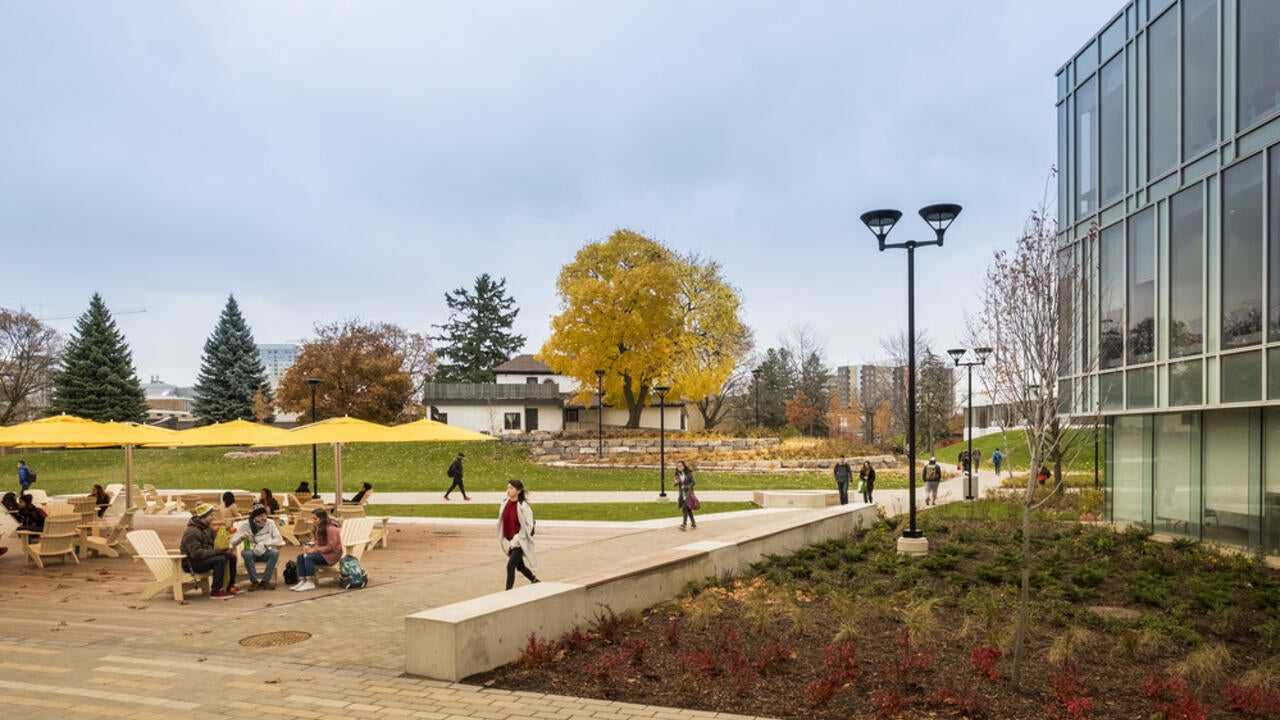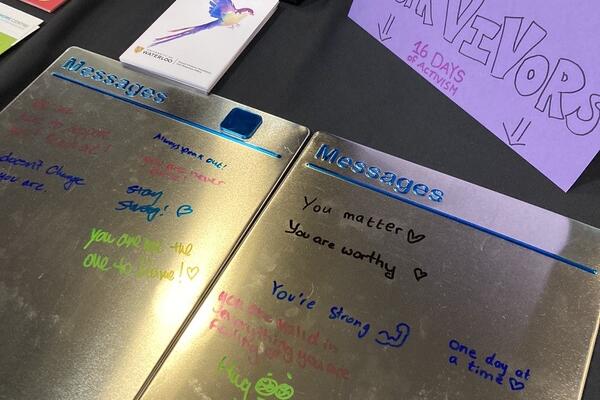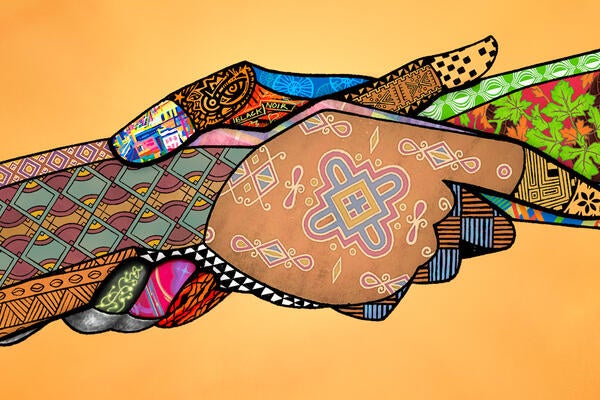
The power of community and collaboration
The University of Waterloo pays tribute to 16 Days of Activism Against Gender-Based Violence

The University of Waterloo pays tribute to 16 Days of Activism Against Gender-Based Violence
By Sexual Violence Prevention and Response OfficeNovember 25 marks the start of 16 Days of Activism Against Gender-Based Violence, an annual campaign that acknowledges the prevalence and urgency of violence against women, girls, and gender-diverse individuals and communities, and call for its prevention. 16 Days provides an opportunity for campus community members to spotlight the everyday and structural realities of gender-based violence (GBV), on and off campus, and engage in dialogue.
According to researcher Nobuhle Judy Dlamini, GBV is described as violence “directed against a person on the basis of their sex or gender, including acts that inflict emotional, mental, sexual, or physical harm, threats of such acts, coercion, and other deprivations of liberty.” It includes sexual violence (including sexual harassment), intimate partner violence, emotional violence, psychological violence, reproductive violence, financial violence and technology-facilitated violence, among others.
GBV occurs across all societies, cross-cutting social, cultural, economic and geopolitical lines — making it a salient local, national and global occurrence. Women disproportionately experience GBV, and Indigenous, racialized, 2SLQBTQ+, poor, non-status women, women with disabilities, and gender-diverse individuals and communities are particularly at risk.
Sexual and gender-based violence (SGBV) on campus, remains an ongoing and urgent issue, both at the University of Waterloo, and across post-secondary institutions in Canada. On June 28, 2023, a horrific act was committed in a classroom against a faculty member and two students. This was a targeted act by the perpetrator, who caused harm because of the course’s focus on gender. This incident demonstrates the everyday realities of GBV on campus and reflects how systemic gendered ideologies can ultimately manifest as violence.
While response-oriented interventions, such as direct service support and policy are necessary, they must be coupled with prevention-oriented interventions to address the root causes, including awareness-raising and education — which requires community commitment, collaboration and engagement.

The Sexual Violence Prevention and Response Office (SVPRO) seeks to embed a public health approach to SGBV prevention. Public health approaches recognize the disparate health outcomes that SGBV has for women, gender-diverse, and 2SLGBTQIA+ individuals, whose well-being and health are disproportionately negatively impacted. Advancing a public health approach frames the issue as an “epidemic,” which can then be detected and treated before it occurs through community and collaborative efforts. We encourage campus community members to reflect on their role in preventing violence, through awareness-raising and knowledge mobilization.
The SVPRO offers active bystander intervention training, male allyship workshops and events mobilizing consent literacy including our bi-annual Consent Weeks, What Were You Wearing? art installation, Dogs Against Cat-Calling, and interactive awareness-raising booths. We encourage, most importantly, normalizing ongoing conversation about SGBV, which is something we can all take part in at individual, relationship, community, institutional and government levels.

Drawing from the United Nation’s Declaration on the Elimination of Violence Against Women, here are some starting points to consider as 16 Days begins:
The SVPRO, alongside its incredible campus partners, is happy to bring initiatives to campus to celebrate 16 Days. Visit our website for a full listing of events.
November 28
16 Days Booth - 12-4PM in SLC
November 29
Wen-Do Women's Self-Defence Workshop for Staff & Faculty - 12-2PM
Wen-Do Women's Self-Defence Workshop for Students - 2:30-4:30PM
December 7
16 Days Booth - 12-4PM in SLC
To learn more about 16 Days, visit the United Nations Women website.

Read more
Upside Robotics secures new funding to accelerate the future of sustainable farming

Read more
Discover the meticulous work that uncovered Black stories on campus and preserved them for the future

Read more
A message from the President and Vice-Chancellor
The University of Waterloo acknowledges that much of our work takes place on the traditional territory of the Neutral, Anishinaabeg, and Haudenosaunee peoples. Our main campus is situated on the Haldimand Tract, the land granted to the Six Nations that includes six miles on each side of the Grand River. Our active work toward reconciliation takes place across our campuses through research, learning, teaching, and community building, and is co-ordinated within the Office of Indigenous Relations.